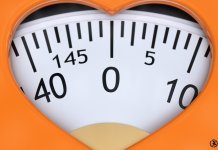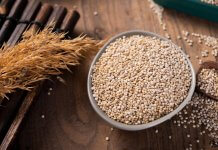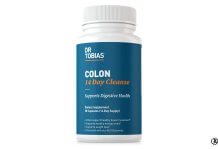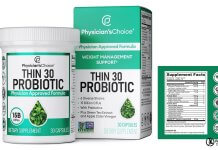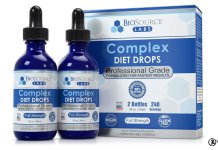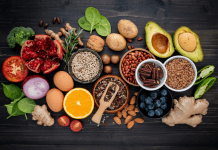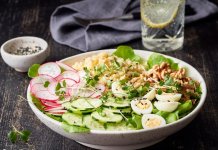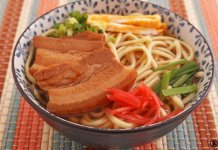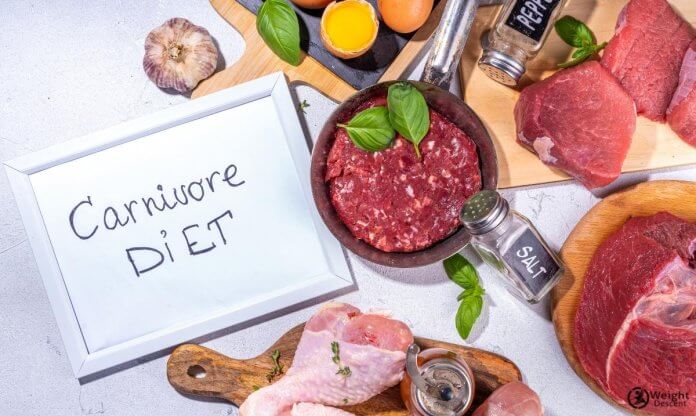I get commissions for purchases made through links on the site. As an Amazon and Clickbank Associate I earn from qualifying purchases. Learn more.
If you’ve ever attempted dieting, you are probably familiar with the carnivore diet. If not, here’s the deal: carnivore diet is a meat-specific diet that includes plenty of healthy meat and other animal products. It is an excellent diet for weight loss and is also known to help regulate your mood swings. But what exactly are the basics of this diet? How does it work and what are the pros and cons? We will learn all that and more in the following few sections.
Estimated reading time: 13 minutes
Table of contents
The Basics
Even before you start following the carnivore diet, you might be wondering how the basics of this diet work. What food does this diet include and what kind of lifestyle does it encourage? Luckily, we’re here to answer all your questions so that the carnivore diet, as a concept, is demystified, and more individuals can make the most from it.
In the simplest terms, the Carnivore diet may be defined as a type of restricted diet form. But why and how does it restrict us? According to the diet, you can only consume animal products. This can be anything ranging from red and white meat, fish, poultry items, and selected dairy items.
Unlike other diets that encourage you to include tons of fruits and vegetables, the Carnivore diet restricts all veggies and legumes. It also encourages you to limit consuming nuts and grains. Even though diary items are now a part of the diet, many followers of this lifestyle would recommend you avoid dairy. They suggest limiting products with high lactose content and replace them with low-lactose ingredients instead.
At this point, you might be wondering where this diet gets its origin. Interestingly enough, the carnivore diet is based on the common notion that our earliest population primarily thrived on animal protein from hunted game and fish. The diet also attributes increasing rates of chronic ailments to food rich in the carb.
Nowadays, you will find several comparable diets like Ketogenic and Paleolithic diets that suggest limiting the consumption of carbs and carbohydrate-based products. However, such is not the case with the carnivore diet. This diet is extremely restrictive about your carb intake and its proponents aim for consuming zero carbohydrates.
While there isn’t any specific person to have invented the diet, American orthopedic Shawn Baker has steadily popularized it with his insights. Over the years, he has cited multiple pieces of feedback from individuals that have followed the diet. According to Baker and other followers of the diet, the Carnivore diet not only helps with weight loss, but it also works exceptionally on a series of medical conditions like depression, issues stemming from obesity, high blood glucose content, panic attacks, anxiety, among others.
In the following few sections, we will learn more about this diet with specific emphasis on the many benefits it comes with.
- The Smoothie Diet: 21-day Program Review – The Smoothie Diet is a 3-week weight loss program. Even if the objective is to help users with a healthy and shaped body, you can expect a lot of other benefits. You will be more active and energetic than ever. The weight loss will be easy and fast without any side effects.
Why Should You Try The Carnivore Diet?
If you are wondering why exactly you should try the carnivore diet, here are some reasons to get you started.
Weight loss
One of the biggest highlights of the carnivore diet is that it focuses entirely on animal-based products. However, the diet also limits consumption of other food items in a bid to limit carbs. Because it is a strict, zero-carb diet, you need to bid adieu to nuts, seeds, bread, pasta, wheat, legumes, grains, and rice, among many.
Even though it isn’t always apparent to us, carbs are one of the biggest reasons for weight gain. Because the carnivore diet is entirely limiting that by focusing on grilled or baked fish and meat, your fat and carbohydrate intake is minimal. The best part: you get to build on protein without compromising on delicious food and all while getting rid of the extra flab.
Helps Regulate Mood
Very often, we struggle with a range of mental and emotional transformations that lead to panic attacks, anxiety, depression, among other mental health issues. While there isn’t any rule of thumb to address these issues, eating a full meal often satisfies your brain and helps regulate its normal response. Because this diet doesn’t require you to cut down on anything major, and because you get to enjoy weight loss and other benefits without sacrificing on meat, you feel full and physically satisfied for the longest time. Over time, it helps regulate a healthy mood keeping you emotionally stable and sustained.
Regulates Blood Sugar Level
Unlike other diets that include fruits or other forms of natural or processed sugar, the carnivore diet entirely restricts it. It is thus an excellent option for people struggling with diabetes. Carnivore diet will offer variety to diabetics because they can now choose from fish and lean meat. The best part: they do not gain any carbs which can otherwise worsen the excessive glucose level.
Higher Energy Levels
Because the carnivore diet entirely focuses on animal products, it is only likely that you will enjoy elevated energy levels when you follow it. However, to achieve maximum results, you need to back this diet with the right exercise. Once you do this, you will notice a visible and positive change in your usual energy levels.
Better Sleeping Patterns
One of the main reasons we wake up and struggle to fall asleep is boredom that is often interlinked with hunger. However, the carnivore diet is addressing both problems by giving you a full meal. Once you follow the diet, you will notice improved levels of sleep because your body is now full and requires energy to restart again.
- Meticore – Meticore is the newly developed and highly-effective weight-loss supplement that guarantees positive results in no time.
Getting Started
Now that you know all about the basics and the benefits of the Carnivore diet, it’s time you started following it. To make things simpler for you, we have listed out the food that can and cannot be included as part of the diet.
What Should You Eat?
Typically, carnivore diet advocates consuming any animal-based products. Typically, you would want to consume the following:
- Meat (both lean and red, including beef, chicken, pork, and lamb among others). This diet also encourages you to consume organ and game meat.
- Almost all types of oily fish like salmon, tuna, sardines, etc. You can also consume crab, prawns, and other seafood.
- Animal products like eggs and other animal-based broth from bones, fat, and organs
- Dairy, that has low lactose content including (but not limited to) butter, any type of sharp or hard cheese like Parmesan and Cheddar, cream, etc.
Depending on how you like your food, you might want to season the meat with some chili flakes, salt, and pepper. Some followers of the diet also tend to include honey, though it is not directly a part of the plan. Because honey is derived from bees, it is deemed an animal product and consumed in smaller increments. You can also use it as a seasoning or sauce base.
What Should You Not Eat?
As you already know, the carnivore diet restricts a couple of common food items like:
- Vegetables, especially the high carb ones like potatoes, broccoli, cauliflower, etc.
- Almost all common grains like rice and wheat.
- Any type of processed sugar.
- Alcohol.
- Sugary fruits like bananas, papayas, berries, apples, oranges, etc.
- Processed drinks, caffeine-laden drinks.
- Beans and other types of lentils.
- Several nuts like almonds and walnuts because they come with excess fat.
Carnivore Diet Food List
The carnivore diet is an eating approach that primarily emphasizes the consumption of animal-based foods while excluding most plant-based foods. Here’s a list of foods typically included in the carnivore diet:
Animal Proteins:
- Beef (steak, ground beef, roast)
- Pork (bacon, pork chops, pork belly)
- Lamb (chops, leg, rack)
- Poultry (chicken, turkey, duck)
- Organ Meats (liver, heart, kidney)
- Fish (salmon, trout, mackerel)
- Seafood (shrimp, crab, lobster)
- Game Meats (venison, bison, elk)
Animal Fats:
- Butter (grass-fed if possible)
- Ghee (clarified butter)
- Lard (rendered pork fat)
- Tallow (rendered beef or lamb fat)
- Duck Fat
Eggs:
- Whole Eggs
- Egg Yolks
- Eggs from Various Animals (duck, quail)
Dairy (in moderation, for those who tolerate it):
- Hard Cheeses (cheddar, gouda, parmesan)
- Soft Cheeses (brie, camembert)
- Heavy Cream (for coffee or cooking)
Beverages:
- Water
- Bone Broth (homemade, without added vegetables)
Seasonings and Condiments (in moderation, depending on personal preferences):
- Salt
- Pepper
- Spices (such as garlic powder, onion powder)
- Mustard (without added sugars)
- Hot Sauce (without added sugars)
It’s important to note that the carnivore diet strictly avoids most plant-based foods, including fruits, vegetables, grains, legumes, nuts, seeds, and processed foods. The goal of the carnivore diet is to rely solely on animal-based sources of nutrition. However, before starting any restrictive diet, it’s recommended to consult with a healthcare professional to ensure that the diet aligns with your individual health needs and goals.
Carnivore Diet Snacks
Here are some carnivore diet-friendly snack ideas that align with the principles of the diet, which emphasizes the consumption of animal-based foods. These snacks can help satisfy hunger between meals while keeping carbohydrate intake low:
- Beef Jerky: Opt for homemade or store-bought beef jerky made without added sugars or preservatives. Look for varieties with minimal ingredients.
- Pork Rinds (Chicharrones): Enjoy crispy pork rinds as a crunchy and satisfying snack. Look for pork rinds without added flavors or seasonings that might contain carbohydrates.
- Hard-Boiled Eggs: Hard-boiled eggs are a convenient and nutrient-rich snack that provides protein and healthy fats.
- Bacon Strips: Cook a batch of bacon strips and keep them in the refrigerator for a savory and satisfying snack.
- Beef Sticks or Meat Sticks: Choose beef or other meat sticks made with minimal ingredients and without added sugars.
- Salami or Pepperoni Slices: Enjoy slices of salami or pepperoni as a quick and flavorful snack option.
- Sardines or Canned Fish: Canned sardines, mackerel, or other fish can be a great source of omega-3 fatty acids and protein.
- Liver or Organ Jerky: If you enjoy organ meats, consider making jerky from liver or other organ meats for a nutrient-dense snack.
- Cheese (if tolerated): Some individuals on the carnivore diet include cheese as a snack, but it’s essential to choose options with minimal carbs and no added ingredients.
- Canned Oysters or Clams: Canned oysters or clams provide a source of protein, healthy fats, and essential nutrients.
- Smoked Salmon Slices: Smoked salmon offers a delicious and nutrient-packed snack option, rich in omega-3 fatty acids.
- Deli Meats: Choose deli meats such as roast beef, turkey, or ham that are free from added sugars and other additives.
- Bone Broth: Sip on warm bone broth for a nourishing and hydrating snack option.
- Cooked Chicken Wings or Drumsticks: Prepare and store cooked chicken wings or drumsticks for a finger-friendly snack.
- Beef or Lamb Fat Bombs: If you enjoy the taste of rendered animal fats, you can create fat bombs using high-quality beef or lamb fat.
- Beef Sausages: Opt for sausages made from high-quality beef without added fillers or sugars.
Remember that the carnivore diet places a strong emphasis on animal-based foods and excludes most plant-based foods. While these snack ideas align with the carnivore diet’s principles, it’s essential to choose high-quality, minimally processed options. Additionally, consider individual preferences and dietary needs when selecting snacks for your carnivore diet journey.
- BioMelt Pro – Is an all-natural supplement for weight loss, the BioMelt Pro supplement triggers fat-burning processes in the body, ultimately resulting in weight loss.
Bottom Line
Now that you know all about the Carnivore diet, wait no further, and follow this diet right away. Since we have covered the basics, guidelines, and benefits of this diet, you will certainly have an easier time navigating through it. Because our FAQ section also features the common questions associated with this diet, you can now confidently follow the diet with the right insights.
FAQ
A. As previously clarified, the keto and carnivore diets are not the same. Why? Because even though the Keto diet may include carbohydrates and some amount of fiber, the carnivore diet restricts the same. Similarly, even though the keto diet includes berries and other forms of fruits, the same fruits aren’t permissible according to the Carnivore Diet. Having said that, if you are trying the Carnivore diet, there’s a possibility that you might experience some stage of Ketosis.
Even though the carnivore diet allows dairy because it is an animal-based product, you need to understand the many types of dairy products and learn to differentiate between them. Typically, the carnivore diet calls for low-fat, low-sugar, and unprocessed forms of dairy. That means, if you were consuming pasteurized milk in the past, you need to replace it with raw milk while following the carnivore diet.
If you are following the carnivore diet for the first time, you’re probably wondering how soon you can observe results. The answer here would vary from a couple of days going up to a whole week. Once you complete the adaptation period, you start to notice visible improvement in your sleep pattern, overall mood, energy levels, skin tone, and more.
Yes, some individuals who follow the carnivore diet choose to include cheese in their diet. However, the inclusion of cheese on the carnivore diet is a matter of personal preference and interpretation. The carnivore diet primarily emphasizes the consumption of animal-based foods and excludes most plant-based foods. While cheese is a dairy product and not derived directly from animals, it is a high-fat, low-carb food that provides protein and essential nutrients.
Yes, some individuals who follow the carnivore diet choose to include coffee in their diet. However, the consumption of coffee on the carnivore diet is a matter of personal preference and interpretation. The carnivore diet primarily emphasizes the consumption of animal-based foods and excludes most plant-based foods.
Coffee itself is a plant-based beverage derived from coffee beans, which are roasted seeds of the Coffea plant. While coffee is not an animal product, some proponents of the carnivore diet may still choose to include it for various reasons:
Energy and Mental Focus: Coffee contains caffeine, which can provide a temporary boost in energy and mental focus.
Enjoyment and Habit: Some individuals enjoy the taste and ritual of drinking coffee, and they may find it helps them adhere to the diet more comfortably.
Minimal Carbohydrates: Black coffee has negligible carbohydrate content, making it low in carbs and aligning with the principles of the carnivore diet.
However, there are considerations to keep in mind:
Potential Plant Compounds: Coffee contains various compounds that are not present in animal-based foods. Some proponents of a strict carnivore approach may choose to avoid coffee due to its plant origins.
Individual Response: Coffee can have different effects on different individuals. Some people may experience digestive discomfort, jitters, or sleep disturbances from consuming coffee.
Quality and Additions: The quality of coffee and any additives you use (such as sweeteners or dairy) should be considered. Some people on the carnivore diet prefer their coffee black, while others might add high-quality dairy products.
Ultimately, the decision to include coffee on the carnivore diet depends on individual preferences and goals. If you decide to include coffee, it’s important to listen to your body’s response and make choices that align with your overall well-being. If you have any concerns or underlying health conditions, consulting with a healthcare professional is recommended before making dietary choices.
No, onions are typically not included in the carnivore diet, which focuses on animal-based foods and excludes most plant-based foods.
While the carnivore diet primarily focuses on animal-based foods, alcohol consumption is generally not recommended due to its carbohydrate content and potential effects on health.
Resources
- The Carnivore Diet: Benefits, Risks, and Meal Plan: This comprehensive article on Healthline provides an overview of the carnivore diet, its potential benefits, risks, and tips for creating a meal plan. Article Link: https://www.healthline.com/nutrition/carnivore-diet
- Diet Doctor – Carnivore Diet: A Beginner’s Guide and Meal Plan: This guide from Diet Doctor offers a beginner-friendly introduction to the carnivore diet, along with sample meal plans and recipes. Guide Link: https://www.dietdoctor.com/low-carb/carnivore
Books:
- “The Carnivore Code: Unlocking the Secrets to Optimal Health by Returning to Our Ancestral Diet” by Dr. Paul Saladino: In this book, Dr. Paul Saladino explores the science behind the carnivore diet and its potential benefits for health and well-being.
- “The Carnivore Diet Handbook: Get Lean, Strong, and Feel Your Best Ever on a 100% Animal-Based Diet” by K. Suzanne: This handbook provides practical tips, meal plans, and recipes for those interested in adopting the carnivore diet.



